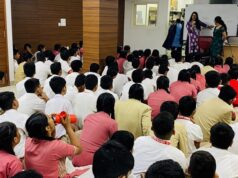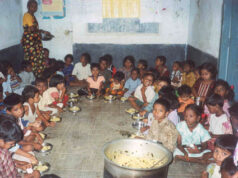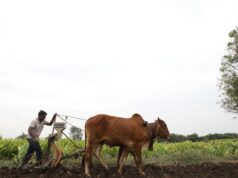CCS was invited by the Indian Express to comment on the Right to Information Bill, 2005 that was passed recently. The article printed on May 16, 2005 is reproduced over here.

Right Act, Wrong TackUnder the new law the state’s duty to publish information must be underlined
The Right to Information (RTI) Bill, 2005, is one of the most significant bills that have been passed recently. But concerns of proper implementation will challenge civil society. What is imperative to note is whether the RTI bill is in line with the quality of democracy and empowerment of people that we seek to achieve. A good right to information should have two components: government’s DTP or Duty to Publish (suo moto) and government’s DTF or Duty to Furnish (on request). This Bill’s emphasis is on the DTF, not DTP.
The sub-section (b) of Section 4, which deals with the mandatory suo moto disclosure of information, includes functions and responsibility of the government organisations, rules, regulations governing its employees. But it has left out suo moto publishing of important items like public and utility contracts, disaster management projects and official travel expenses.
The RTI Act seems to work in many developed democracies, not because of high penalties to bureaucrats or more transparent adjudication of denials, but because most of the information citizens would like to acquire is already available. A high quality democracy would hence make it incumbent on the state to make public all information which affects a citizen.
Though the RTI bill has come out, it is not available for viewing online or at departments. A DTP Act would have made it obligatory for the state to have put it up online and also made departments have a copy. Ironically, one may have to file a request for the RTI bill!
Another important item left out is the suo moto publication of information, released to any person under the RTI Act and which, because of its subject matter, has become or is likely to become, the subject of subsequent requests for substantially the same records. This would shift the focus of the Bill from DTF to DTP. For instance, under the Delhi RTI Act, citizens demanded the information on the delivery of ration supplies to ration shops in their area and the disbursements of these rations to card holders. Just by getting these details out in the open, the working of ration shops has improved beyond imagination. Seeing the impact of this information, the Delhi government promises to make it available automatically every month. The ration card holders would no longer have to file individual requests and fight monthly battles to assure them their ration. Why then should we wait for some in every ward in every town and municipality to file requests individually?
Again, the Section 4 (e), which stated that prior information of any action (policy, scheme, programme or law) by the government will be communicated to the public, has been deleted.
The challenge for civil society and reformer-bureaucrats hence is this: to make DTP an integral and actionable section of the Act. Unless the government government commits to making available to citizens most of the necessary information without their asking, RTI would remain more of a paper right.
The writer is president, Centre for Civil Society, New Delhi
And now see the article being quoted over here Public’s Right to Information, a New Reality in India
“the fact that the Right to Information Bill passed last week is yet unavailable online speaks volumes for India’s culture of obscuring if not denying information to the public”
Imagine my surprise when I was researching the bill and there was no copy available of it online. If you have a link, do please provide us!
Post Disclaimer
The opinions expressed in this essay are those of the authors. They do not purport to reflect the opinions or views of CCS.





